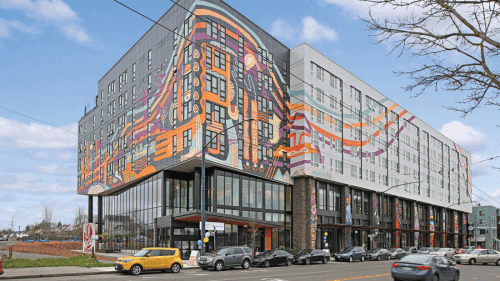In what feels like a long time ago, in a galaxy far, far away (also known as January), the leadership team at ULI Washington (D.C.) hosted a courageous conversation to call attention to the diversity and inclusion shortcomings that our industry is still grappling with in 2020. The goal was for this to be the first in a series of honest, insightful discussions where real estate leaders from our region would share their ideas, struggles, motivations, and hopes for the collective future of our industry.
I was (and still am) proud of ULI, and of the D.C. leadership team, for the courage they showed in taking this step in such a visible way. So, when they formed a working group to continue the effort, and I was asked to co-chair the group with Dawnita Wilson of JBG Smith, I eagerly agreed and was excited to do my part. I’m not sure that any of us understood exactly how prescient the idea of this convening would be.
I never expected to be called to do this work in the midst of a global pandemic that would force our country into lockdown and exacerbate so many of the structural, racial, and economic inequalities across our city.
I never expected to be called to do this work at a time when the city that I love would erupt in civil unrest sparked by the witness of innocent black and brown people being murdered across our country again and again.
I never expected to be called to do this work at a time when places in our city that have long served as symbols of hope and leadership for our nation would be desecrated by tear gas being fired on peaceful protestors.
Yet here we are.
And if I’m being honest, I would tell you that right now I am struggling to fully comprehend what this all means. Or how exactly we need to adjust our work to appropriately respond to these events. Or how best to walk the surprisingly blurry line I feel challenged by each day between anger, anguish, and action. In truth, there have been moments in which I have felt myself struggling to avoid complete exhaustion from the despair, rage, and sadness that I see tearing at the fabric of our country.
Yet I am still here.
So, in an effort to make myself useful, it seems to me that one thing I can do is to keep moving and stay focused on the things that I am not struggling with—the things that I know to be right and true, even in the midst of this maelstrom.
What I am not struggling with in this moment—what I know to be true with every fiber of my being—is that the impetus for starting these conversations about diversity, inclusion, and equity within our industry and our city is more vital today than it has ever been. And because I know this to be true, it motivates me to do something about it. To keep working, to try my best, and to do my part to make progress and have impact.
Because what I also know to be true is that to do nothing or to say nothing is simply not an option.
I acknowledge that, as we move forward with this work in the current environment, it may mean that some of the conversations we have are harder, or more direct, or less filtered. That’s okay. We will do our best to continue convening leaders in our industry and to talk—as plainly and purposefully as we can—about what we can do as individuals, as companies, and as an industry to create change, and have impact, and push back against the darkness that has caused so many of our friends and neighbors and communities pain.
If that means making space for people to speak the names of George Floyd, or Ahmaud Arbery, or Breonna Taylor, or countless others like them, then we will do that. If it means making space to have candid conversations about race, or wealth inequality, or access and privilege, then we will do that, too.
But in the end, what we will endeavor to do is not just to talk, but to act.
For those who have volunteered to join us in this work already, I thank you for stepping up and responding to the call. Though we have hard work ahead of us, I appreciate your efforts and your leadership, and I am honored to count myself as your colleague in the efforts to come. I apologize in advance for the ways in which my many shortcomings may impede our work, but I am confident that we are strong enough together to overcome them.
I am aware that our work here will not, in and of itself, completely change the world, or undo structural racism, or solve the quagmire of police brutality. But I truly believe that if we make an impact in whatever way we can, our work will be a step in the right direction toward these loftier goals. And while that might be a high bar to set, I am reminded of the idea, coined by Benjamin E. Mays and drilled into my head while I was a student at Morehouse College, that “it is not failure, but low aim that is a sin.”
ADAM WEERS is a principal at the Trammell Crow Company, co-chair of the ULI Washington Diversity and Inclusion Working Group, vice chair of the ULI Public/Private Partnerships in Action Forum, a member of the Institute’s Public/Private Product Council, and a volunteer with UrbanPlan, ULI Washington.




